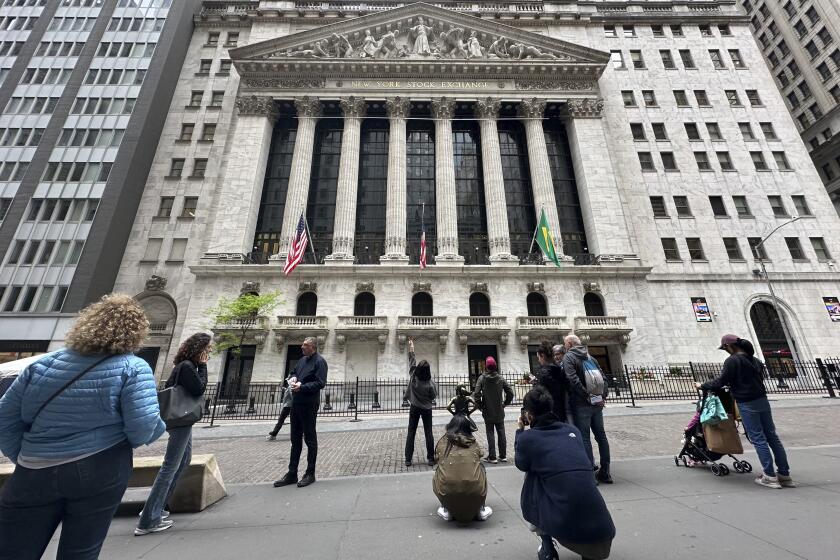SEC Stops Firm From Trading in Penny Stocks : Securities: Blinder Robinson has been suspended for 45 days and cannot underwrite the high-risk offerings for two years.
In the latest round in a decade-long struggle with penny stock mogul Meyer Blinder, federal regulators on Friday suspended the firm he founded, Blinder Robinson, from trading in the low-cost, high-risk securities for 45 days and from underwriting such offerings for two years.
The Securities and Exchange Commission, in an administrative action, also barred Blinder himself from associating with any registered broker-dealer for at least two years.
Lawyers in Washington for the firm and Blinder were out of their offices Thursday afternoon and had not returned a reporter’s telephone call for comment by evening.
Lawyers in the SEC’s enforcement division were at a conference Friday and also unavailable for comment.
Normally, however, such findings are appealable either to the full commission or to a federal judge.
Blinder, 69, of Denver, and four associates were indicted in February on racketeering and securities fraud charges by a federal grand jury in Las Vegas. The indictment followed a 1988 Internal Revenue Service raid on Blinder Robinson’s Denver office.
Blinder Robinson was once the nation’s largest penny stock brokerage.
Penny stocks are low-cost, high-risk securities, usually trading for less than $3 per share. They are not listed on stock exchanges and thus reliable, up-to-the-minute information about them is hard to obtain.
That makes penny stocks--which typically are used to raise capital for new or small companies--prone to fraud by unscrupulous traders and promoters.
The SEC action dates back to the early 1980s and has see-sawed through hearings in the federal courts in Denver and Washington, as well as administrative actions before the full commission and administrative law judges.
The SEC has accused Blinder and the firm of fraud and manipulative practices involving the securities of America Leisure Corp., a firm that told investors it planned to build and operate an Atlantic City, N.J., casino-hotel. However, it only owned 1.72 acres of land in Atlantic City, an area deemed too small for such a venture.






